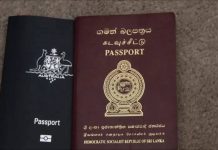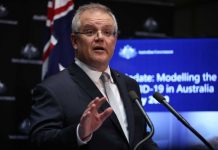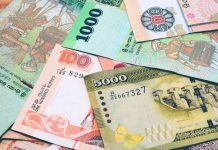COLOMBO (Reuters) – The Sri Lankan rupee ended weaker on Tuesday, as foreign investors continued to exit from bonds and stocks as a lingering political crisis weighed on market sentiment ahead of a key ruling by the island nation’s Supreme Court.
The ruling, expected this week, will determine if the current parliament can continue in the next year or an election should be held. The decision could help end the political crisis.
Foreigners sold a net 165.7 million rupees ($928,812) worth of stocks on Tuesday, and they have been net sellers of 10 billion rupees since the political crisis began on Oct. 26. The bond market saw outflows of about 51.2 billion rupees between Oct. 25 and Dec. 5, central bank data showed. ** Foreign investors sold a net 17 billion rupees ($95.3 million) worth of government securities in the week ended Dec. 5, the highest weekly net outflow since the third week of February 2017. The stock market had net foreign outflows to the tune of 929.1 million rupees last week.
The rupee ended at 179.20/40 per dollar on Tuesday, compared with 179.00/20 in the previous session. ** Credit rating agencies Fitch and S&P downgraded Sri Lanka’s sovereign rating last week, citing refinancing risks and an uncertain policy outlook, after President Maithripala Sirisena’s sacking of his prime minister in October triggered the political crisis.
On Wednesday, Fitch downgraded Sri Lanka’s financial institutions and Sri Lanka Telecom, citing the sovereign downgrade.
This year, there have been 19 billion rupees of outflows from stocks and 143.4 billion rupees from government securities, the latest data from the bourse and central bank data showed.






























